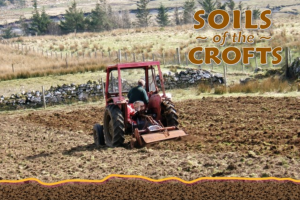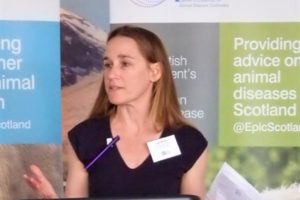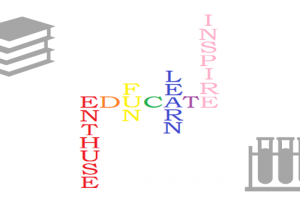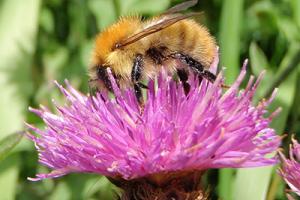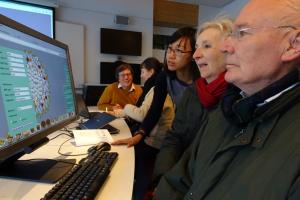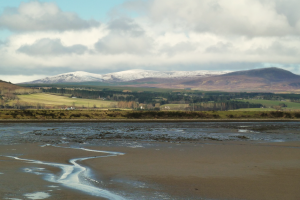In this blog, Professor Lorna Dawson outlines why soil is so important and how she has been involved in creating a range of online, free to access, educational resources on soils - focussing in particular on the soils of the crofts.
Resources, that can readily be undertaken at home, include a range of practical activities such as cooking, crosswords, creating a wormery, making a composter - as well as suggestions for those interested in learning more about soils, crofting and rural communities.
During the COVID-19 crisis SEFARI research institutes are not able to conduct human nutrition trials but that doesn’t mean we can’t find other ways to help.
Normally our Human Nutrition Unit team (pictured in the volunteer dining room - prior to the current COVID-19 social distancing requirements) cook for and feed our volunteers as part of the human nutrition trials conducted by our researchers. The team are interested nutrition and care about what we eat, but what do they do when they have no one to feed?
In this blog we discuss our new project called Diet Detectives, which is supported by SEFARI Gateway's Responsive Opportunity Fund. Helping young people understand where their food comes from and how to eat a balanced diet has always been a key goal of the Rowett Institute's research and community outreach programmes.
The UK government stated strategy is to manage the COVID-19 pandemic “led by the science”. However, calls for more transparency about what this really means are getting louder.
Online educational activities and resources are needed more than ever at the moment to help with home schooling. In this blog, find out how SEFARI is trying to help by making our educational resources more accessible and discover a few of our activities on food, agriculture and the environment that are either available now or are coming very soon.
Lorna Cole, SRUC summarises a recently published review she undertook with 21 other pollinator experts across 18 European c
Are urban community food growing projects the answer to the problem of food poverty and the seemingly ever-increasing number of food banks?
Despite national dietary guidelines, our typical diet still contains too many calories, saturated fat, salt and sugar, whilst having insufficient amounts of fibre, fruits, vegetables and fish. Advice for healthier diets proliferates, but many people may not know how to make sense of all these messages, how reliable they are and how to use them in a retail environment where food producers use sophisticated marketing strategies to promote specific (and often unhealthy) products.
Promoting more healthful food practices is a central goal for policy makers and health professionals in many high-income countries.
The threat to biodiversity is increasingly recognised as a global challenge on a par with climate change. Indeed, the two threats are linked, climate change affects biodiversity and the current Scottish Government Programme for Government notes that “biodiversity loss and the climate emergency are intimately bound together”.
